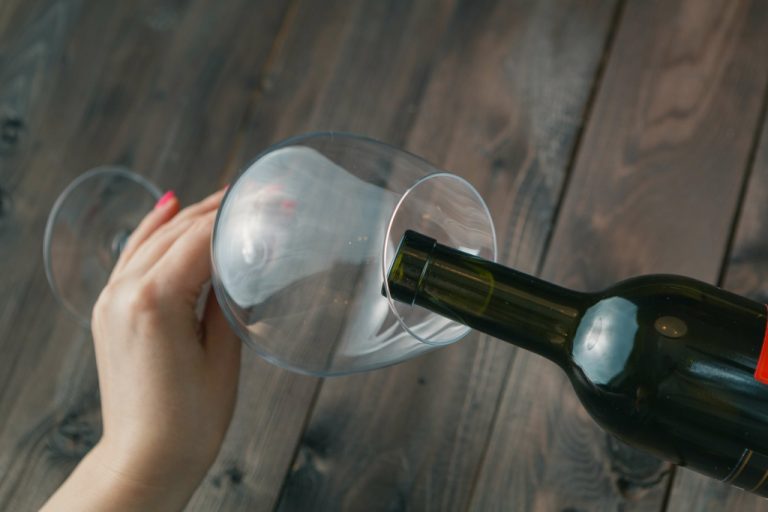Alcohol-induced dehydration can concentrate urine, potentially increasing the concentration of stone-forming minerals. When the body becomes dehydrated, kidneys conserve water by producing more concentrated urine. This means the urine contains a higher proportion of dissolved waste products and minerals. Such concentrated urine can be more irritating to the sensitive lining of the bladder and urethra. The direct irritant effect of alcohol or its metabolic byproducts, such as acetaldehyde, on the urinary system’s mucosal lining can also contribute to this burning sensation. Maintaining a healthy diet and engaging in physical activities can reduce the risk of kidney cancer (31, 32).
Liver or Kidney Disease
Other indicators for medical attention include fever, chills, blood in the urine, or persistent urgency and frequency of urination. Pain radiating to the back or side, particularly if localized to one area, should also prompt a visit to a healthcare provider. If bladder discomfort significantly impacts daily life or quality of sleep, a doctor can help identify underlying causes and recommend appropriate management strategies. Alcohol consumption can significantly worsen symptoms for individuals with pre-existing bladder or urinary tract conditions. For those diagnosed with Interstitial Cystitis (IC), also known as Bladder Pain Syndrome, alcohol is a frequent trigger for flare-ups. Alcohol’s irritant and diuretic effects can inflame an already sensitive bladder lining, increasing pain, urgency, and frequency of urination.
Myth: If your kidneys seem to be functioning well, you are probably doing fine
Alcohol use can also promote the kidney-damaging formation of harmful compounds called reactive oxygen species (ROS). Do not drink cranberry juice if you have arthritis, heartburn, irritable bowel syndrome or hiatus hernia, as this could make your symptoms worse. It is thought that cranberry juice can help prevent cystitis by stopping certain bacteria (such as E coli) from growing and multiplying in your bladder. Some people also think that it may help if you have developed a UTI, although there is no firm evidence to support this. Energy drinks fall into this category because they have a lot of caffeine, added sugar, and additives like phosphorus and sodium.
Short Term Effects
It may be recommended that an individual gives up alcohol, reduce weight, and adhere to a healthy diet to manage liver disease. In situations where liver failure occurs, a liver transplant may be required. Intense back discomfort or agony in the stomach or genitalia may be experienced while the body works to pass the stone. The body may get severely infected or clogged if heroin addiction the stone is not passed. The kidneys can recover from the damage caused by alcohol after a period of abstinence.

- Other indicators include swelling in the hands, feet, ankles, or around the eyes, which occurs when kidneys are not effectively removing excess fluid.
- Treat dehydration by drinking fluids and electrolytes, such as a sports drink with electrolytes and a carbohydrate solution.
- A standard drink is approximately 12 ounces of beer, 5 ounces of wine, or 1.5 ounces of distilled spirits.
Dialysis is typically a lifelong does alcohol kill kidneys treatment without a kidney transplant. Consult with your doctor before proceeding with any sort of treatment measures. At Renaissance Recovery our goal is to provide evidence-based treatment to as many individuals as possible.
How Drinking Alcohol Affects Your Kidneys
Sometimes the symptoms of serious liver diseases are not noticeable. But one of the sure signs of liver disease is when you feel pain in your liver after drinking alcohol. Causes of pain originating in the liver itself include chronic hepatitis (liver inflammation), fatty liver disease, liver abscess, and liver cancer.
Ohio Recovery Center

Urinary tract infections (UTIs) can sometimes progress to kidney infections if untreated. High blood pressure (hypertension) is one of the leading causes of chronic kidney disease (CKD). Sustained hypertension puts extra strain on the delicate blood vessels in the kidneys, potentially leading to damage over time. Understanding what really is behind alcohol-induced kidney disease is essential. Additionally, it can raise blood pressure, which is another risk factor for kidney http://107.161.177.42/~beta/infintor/stories-of-recovery-families-for-addiction/ disease.
Contact a Recovery Advocate today to learn how we can help you achieve lasting recovery. Rather, it is an umbrella term not specifically defined and refers to kidney diseases caused by alcohol use. Alcoholic kidney disease often refers to any kidney disease caused by heavy alcohol use.

